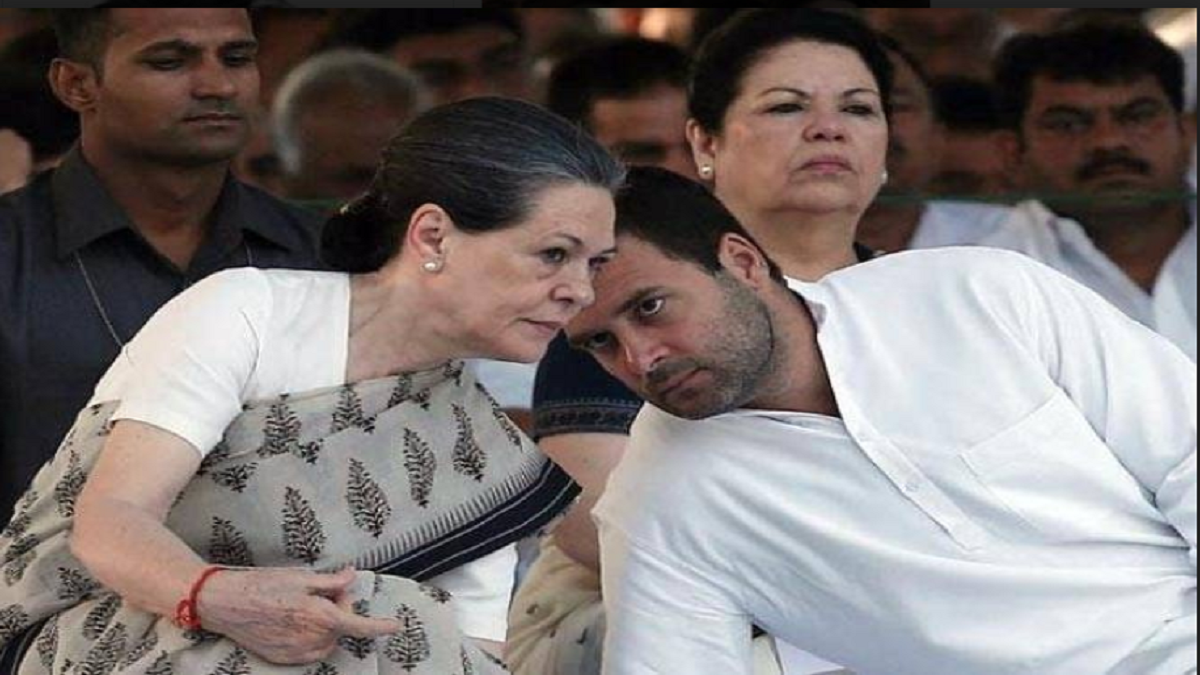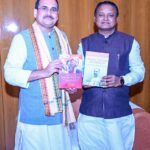Congress’ idea of India begins & ends with family
- By : Anirban Ganguly
- Category : Articles
- Tags: Bjp, China, Congress, Deendayal Upadhyaya, Dr Syama Prasad Mookerjee, GST, Idea of India, Narendra Modi, Prime Minister

The party’s ‘first family ‘is essentially driven by a dictatorial mindset and thus its invective-driven politics which repeatedly casts aspersions on the choice of the people if not voted to power.
Replying to the motion of thanks to the President’s address in the Rajya Sabha, Prime Minister Narendra Modi, who had just been re-elected as Prime Minister for a historic second term with a bigger mandate, made an observation, which starkly exposed the Congress’s actual mindset. Modi called out to the depleted and yet conceited Congress leadership and lambasted its penchant for debunking the resounding mandate and for loudly implying that the mandate given to the BJP and Modi was a mistake that the people of India had made, and that it was not acceptable to the party. “After such a big mandate, you say you (BJP) have won, but the country has lost… If the Congress loses, does the country get defeated? Does the Congress mean the country and the country means the Congress? There is a limit of arrogance,” Modi told the House.
Ever since its pathetic decimation in the 2014 general elections, the Congress, to be more precise, its first family, has been bitter and has repeatedly harangued the Indian electorate on its choice of Modi. PM Modi was right, this propensity of the Congress to equate one party with the country, or one family with the country, has always smacked of a deep-rooted arrogance stemming from an eradicable sense of entitlement. It is a sense of entitlement which treats ordinary people as commodity, national interest as up for barter, and the country as a fief.
When the GST was being debated, when finance ministers of Congress-ruled states supported it within the closed doors of the conference halls, but attacked it publicly under pressure from the Congress family, late Arun Jaitley had once described this attitude in a devastatingly candid and yet stinging manner. Jaitley had then said that it was clear that the Congress’s top two “leaders have taken their 2014 defeat very badly. And therefore they are unable to accept the fact that anybody outside the Gandhi family can also rule this country”.
This is exactly the attitude which has driven the Congress since 2014. It has led both Rahul and Sonia Gandhi to make the Congress come across as a party of the fringe; others have termed it the “break-India” party. A party which, when India is challenged internally and externally, always ensures that it sides with India’s adversaries. This has been repeatedly seen since 2016, when Rahul Gandhi was quick to jump to the defence of those elements within Jawaharlal Nehru University and across the country who were demanding that India be dismembered and that the hanging of terrorists needed to be avenged.
The desperation which grew out of realising that they have been now relegated to the political margins for a while, also led Rahul Gandhi to resort to an unimaginative prank of herding active Congress workers and office bearers in Ladakh to say that their land was being grabbed by China and that the Modi government did not do anything about it on the very day when PM Modi visited Leh and from the Himalayan heights gave out an unambiguous message to China that the “age of expansionism” was over.
It is evident that the Congress’s first family takes defeat personally. But this is not a new-found habit of the Nehru-Gandhi family. It may have accentuated in the present, primarily because of their complete political irrelevance and marginalisation. However, it is a trait that has existed throughout the family’s history. Recall Jawaharlal Nehru’s vitriolic, intolerant and anti-democratic utterance when he had yelled at Dr Syama Prasad Mookerjee, in the early days after the formation of Jana Sangh, that he would crush the party. Mookerjee had then calmly retorted that he would, in response, crush Nehru’s crushing mentality.
Nehru himself took defeat personally. Writing of this mentality, as early as 1961, when the Congress had lost by-elections to the Lok Sabha and to a few Assembly and corporation seats, Deendayal Upadhyaya had pointed how the Congress had started speaking of “banning Jana Sangh”, that such an “idea should occur to them is itself heresy in democracy”. Upadhyaya had argued, “What is the difference between General Ayub banning all political parties and Pandit Jawharlal Nehru allowing parties only of his choice to exist? In a democracy this choice lies with the people, not with the rulers. If rulers begin to exercise this power, there will be dictatorship and not democracy.” The Congress first family is essentially driven by a dictatorial mindset and thus its invective-driven politics which repeatedly casts aspersions on the choice of the people, if they happen to be left out as the selected.
Upadhyaya’s description of the Congress’s attitude to defeat is strikingly similar to the present attitude of the Congress and its first family, “Everybody can pose to be a democrat so long as he is supported by the people, but it requires deep faith to continue to be so even when you are defeated… The Congress leaders can bow before the people’s verdict, if it is in their favour. But the moment people change their verdict, then there are a host of invectives reserved for them and their chosen representatives and all measures are considered fair to compel the people to bow to the Congress. They do not want a people’s government but a people faithfully following, and every-time voting, for a Congress government.”
This has now been furthered narrowed, it had shrunk during the Indira Gandhi years, when the country for a while had been turned into a vast prison because she had been issued a judicial verdict against her elections, and now, under the present crop of Gandhis, it has shrunk even more. What they want is people following faithfully the Nehru-Gandhi family and every time voting for them. The moment this does not happen, choicest invectives are reserved for the people and for the leaders that they have reposed faith in and have elected.
The bile that the Rahul Sonia-Priyanka trio and their beholden Congress coterie thus spews on Modi is the direct effect of realising that people have rejected them. For the Congress family thus all measures are fair to try and make the people and the country bow before them, even it means dinning with the aggressors and siding with wreck-India forces!
But Modi’s aspiration and vision of a new India, his one-pointed focus of transforming India can hardly be retarded by a bunch of deracinated, arrogant, myopic and blinkered legatees of a fading dynasty which has tried to corrupt and usurp India’s democratic spirit. As Deendayal Upadhyaya wrote in 1967, when for the first time, the Congress monolith was broken, “The Congress rule of limitation, dependence and self-delusion has passed away. Now let us usher in an era of swadharma, swavalambana (self-reliance and selfrealisation) — an era of peace with honour, prosperity with happiness and progress in the service of humanity.” People have reposed faith in Modi to usher in such an era today; they have clearly and repeatedly rejected clueless and dishonest dynasts.
(The writer is Director, Dr Syama Prasad Mookerjee Research Foundation)
Image Source: https://thedailyguardian.com
















